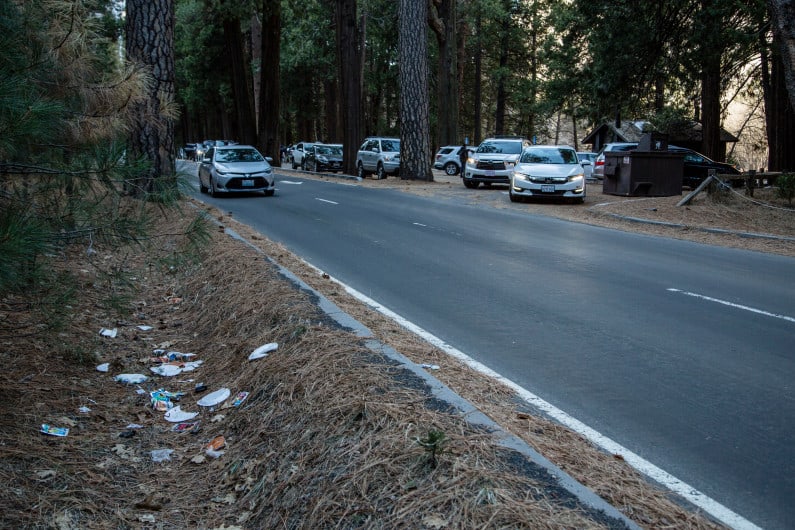
We started this discussion here. Since then, more articles have come out to give more context. This morning in the Washington Post, we have this story headlined “In shutdown, national parks transform into Wild West — heavily populated and barely supervised”. It looks like there are at least two sets of problems, (1) trash and bathrooms, and (2) people doing illegal things, and/or being mean to each other aka “Wild West” or “Lord of the Flies.” My original post wondered why people who use Parks would be so much worse than people who use National Forests or BLM land, who seem to get along at campsites without hosts. Are they different kinds of people? I’ve seen small campgrounds in the nearby (to Joshua Tree) Angeles National Forest (even campgrounds without water, nor trash pickup, nor people available to moderate disputes). It might be that people come from greater distances, spend more money and expect more at Parks, but why would that turn Sally the Camper into Lord (or Lady) of the Flies? That was my original question. I think it would be a fascinating and useful topic for social science research as all places get more crowded. It’s funny that we have spent zillions of dollars trying to predict how climate change will change parks, and we know so little about human behavior that is a more urgent threat.
From this AP story:
Campers at Joshua Tree National Park in Southern California’s deserts were reporting squabbles as different families laid claims to sites, with no rangers on hand to adjudicate, said Ethan Feltges, who operates the Coyote Corner gift shop outside Joshua Tree.
From a WaPo piece here:
It’s not quite ‘Lord of the Flies’ yet,” said Bryan Min, 30, who traveled to Joshua Tree with friends from Orange County and is camping outside the park. “Who knows how it’ll be tonight?”
In the WaPo article, they talk to different parks around the country. Most seem to be getting on with help from nearby businesses and Park concessionaires. They also look at the staying open vs. closing idea, and mention that some local businesses and visitors prefer staying open.
Some advocates for the parks aren’t happy about this situation, fearing that visitors will do permanent damage to the parks and disrupt fragile ecosystems. They’d like to see the parks fully closed.
“The parks are supposed to be heritage sites for generation after generation. I would rather they close than be damaged,” said Joe De Luca, a sales associate at Nomad Ventures in the town of Joshua Tree.
During a government shutdown in 2013, Joshua Tree was closed to all visitors. The winter holiday season is a busy time here and important for local businesses, and some people are grateful that the park hasn’t blocked access this time, said Kenji Haroutunian, president of Friends of Joshua Tree, a nonprofit climbing organization.
Here’s the tagline for this AP story: Unlike shutdowns in some previous administrations, the Trump administration was leaving parks open to visitors despite the staff furloughs.
The Trump administration is front and center, courtesy of the NPCA representative (remember, those are the folks who said the Trump administration was interested in logging in National Parks).
Unlike shutdowns in some previous administrations, the Trump administration was leaving parks open to visitors despite the staff furloughs, said John Garder, senior budget director of the nonprofit National Parks Conservation Association.
“We’re afraid that we’re going to start seeing significant damage to the natural resources in parks and potentially to historic and other cultural artifacts,” Garder said. “We’re concerned there’ll be impacts to visitors’ safety.”
“It’s really a nightmare scenario,” Garder said.